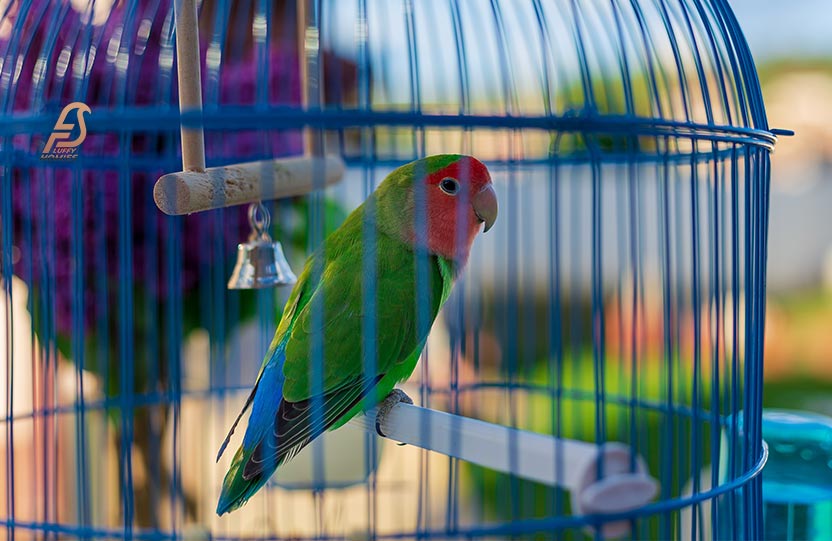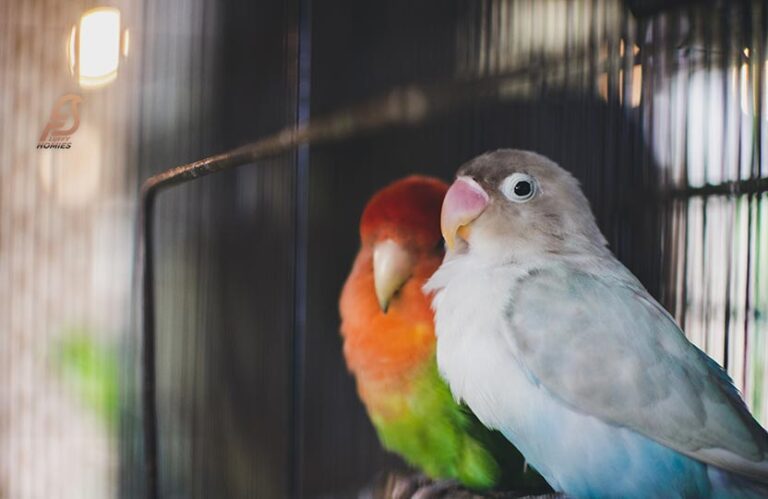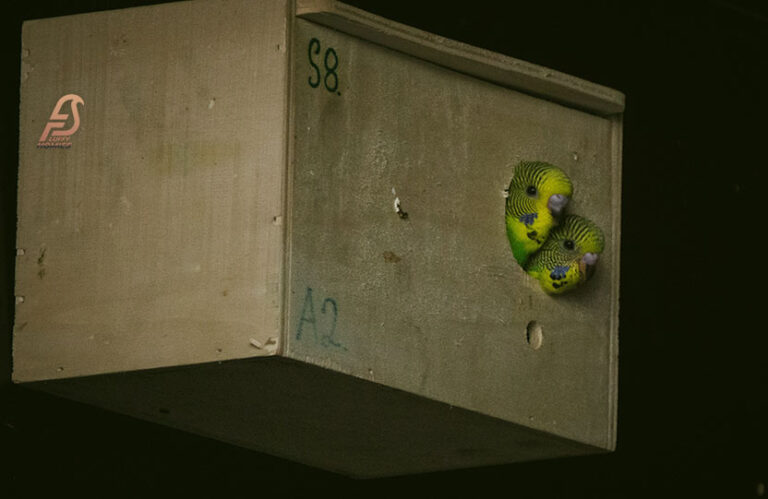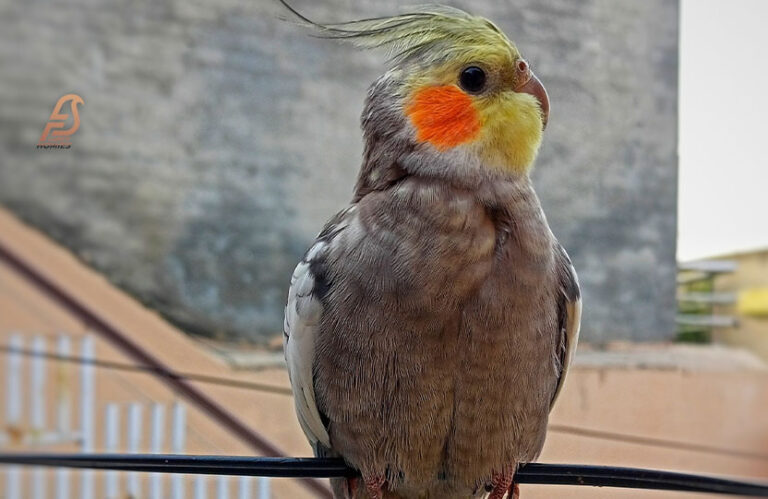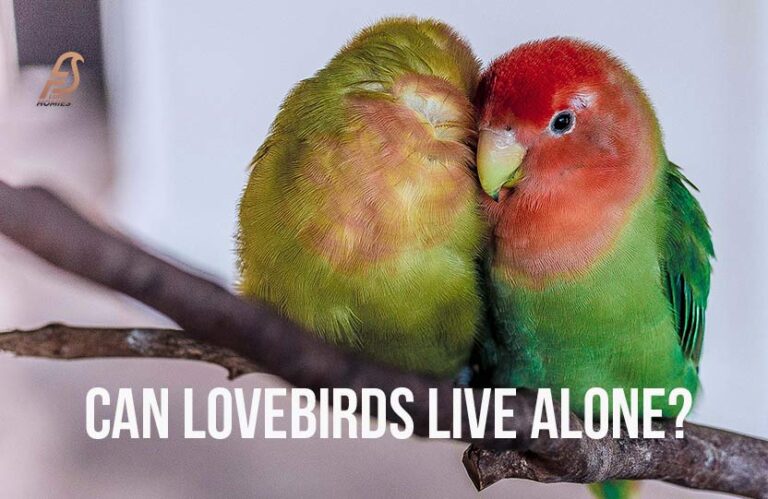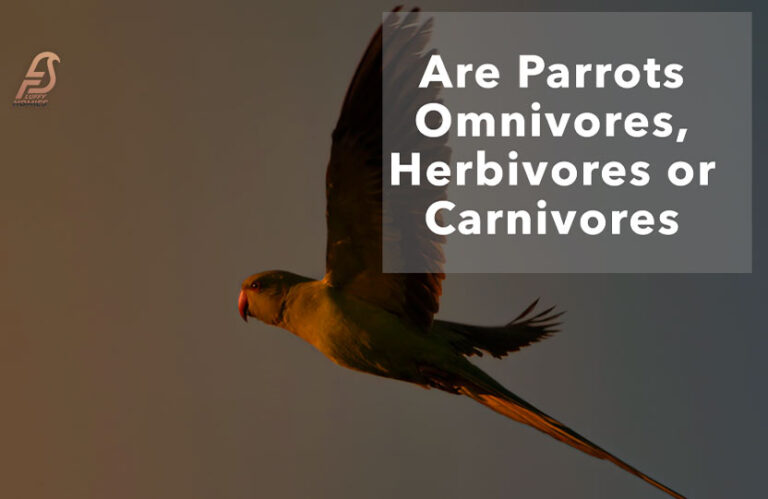Reasons Why Did My Lovebirds Die Suddenly? (Love Lost 2024)
The one who is most precious to you and you are with him yesterday happy and spending a beautiful and but in the next, he will die. I understand your feelings it’s heartbroken. This is the same in humans and birds also. Then why did my lovebirds die suddenly?
When your fluffy homies die suddenly and you don’t have any idea what you do now and what are the reasons behind this that lead your fluffy friend to death. Birds also cry sometimes and you don’t notice that.
At that time, you think that if I search this before happening that then my fluffy bird will be with me now. There are many types of reasons behind this sudden death. So, you have to check that you are not performing any of them.
But before searching for the cause of your lovebird there are also some steps you have to do before it. You have to confirm the death and what to do with the body.
How to confirm if your lovebird is dead or alive?
If you are concerned about the health of your lovebird, it is important to observe its behavior and physical condition. Some signs that a lovebird may be alive include:
- Breathing: Lovebirds, like all living organisms, need oxygen to survive. If your lovebird is breathing, it is likely alive.
- Movement: Lovebirds are active birds and typically move around frequently. If your lovebird is still and not moving, it may be a sign that it is sick or injured.
- Eating and drinking: Lovebirds need to eat and drink regularly to stay healthy. If your lovebird is not eating or drinking, it may be a sign of illness.
- Alertness: Lovebirds are generally alert and aware of their surroundings. If your lovebird seems lethargic or unresponsive, it may be a sign of illness or injury.
If you are still unsure whether your lovebird is alive or dead, you can try gently touching it to see if it responds. If it does not respond and you are unable to detect any of the signs of life listed above, your lovebird is likely deceased.
What to Do If Lovebird Dies?
If your lovebird dies, there are a few steps you can take to properly care for their remains:
Contact a veterinarian
If your lovebird dies suddenly or unexpectedly, it is a good idea to contact a veterinarian to determine the cause of death and to rule out any underlying health issues.
Handle the remains carefully
It is important to handle the remains of your lovebird with care and respect. Use gloves or a towel to handle the body, and avoid touching the head or beak if possible.
Dispose of the remains
There are a few options for disposing of your lovebird’s remains, including burial, cremation, or disposal in a pet cemetery. You can also consult with a veterinarian or a local pet store for guidance on the best option for your situation.
Take care of yourself
Losing a pet can be a difficult and emotional experience. It is important to take care of yourself and allow yourself time to grieve. It can be helpful to talk to a trusted friend or family member or to seek support from a grief counselor or support group.
If you have any concerns or questions about caring for the remains of your lovebird, it is always a good idea to consult with a veterinarian or pet care professional for guidance.
Why Did My Lovebirds Die Suddenly?
Toxic Foods and Plants
Lovebirds are sensitive to certain foods and toxins that can be harmful or even deadly to them. Some toxic foods that can cause sudden death in lovebirds include:
- Alcohol: Lovebirds can be toxic to alcohol, which can result in shallow breathing, trembling, and even death.
- Caffeine: Lovebirds can be poisoned by caffeine, which can result in fast breathing, trembling, and even death.
- Garlic and onions: Garlic and onions both contain chemical substances that are poisonous to lovebirds and can result in anemia, weakened condition, and even death.
- Nutmeg: When consumed by lovebirds, nutmeg can be poisonous and result in trembling, disorientation, and even death.
- Avocado: Avocados contain a poison called persin, which is poisonous to lovebirds.
- Chocolate: Theobromine, a poisonous ingredient found in chocolate, is lethal to lovebirds.
- Rhubarb leaves: Oxalic acid, which is present in rhubarb leaves, is harmful to lovebirds and can result in tremors, seizures, and even death.
In addition to certain foods, certain plants can be toxic to lovebirds and can cause sudden death. Some toxic plants that can be harmful to lovebirds include:
- Azaleas: Azaleas contain toxins that can cause vomiting, diarrhea, and even death in lovebirds.
- Foxglove: Foxglove contains toxins that can cause vomiting, diarrhea, and even death in lovebirds.
- Oleander: Oleander contains toxins that can cause vomiting, diarrhea, and even death in lovebirds.
- Rhododendron: Rhododendron contains toxins that can cause vomiting, diarrhea, and even death in lovebirds.
- Yew: Yew contains toxins that can cause vomiting, diarrhea, and even death in lovebirds.
You have to provide them healthy foods like lovebirds can eat strawberries, watermelon, and more interesting fruits. Because food can be the reason of your lovebirds death.
Infection or Illness
Lovebirds can develop infections or other illnesses that can lead to sudden death. Some common symptoms to watch for include lethargy, loss of appetite, respiratory difficulties, and changes in behavior or appearance. If you suspect that your lovebird is sick, it is important to seek veterinary care as soon as possible.
Also Check: Can Parrots Really Eat Cheetos?
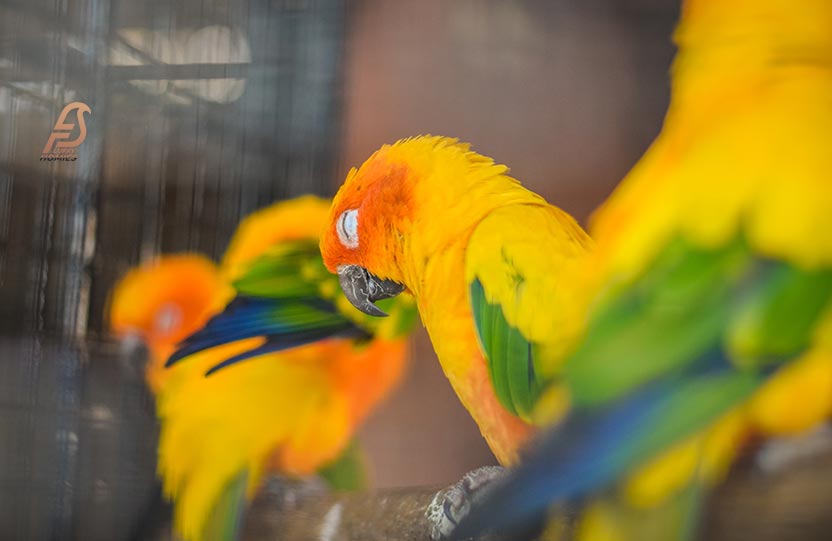
Egg Yolk Peritonitis
Egg yolk peritonitis is a potential cause of sudden death in lovebirds. Egg yolk peritonitis is a condition that occurs when the yolk of an egg becomes trapped in the abdominal cavity of a female lovebird.
The yolk can then become infected and cause inflammation of the abdomen (peritonitis). This condition can be very serious and can lead to sudden death if not treated promptly.
Symptoms of egg yolk peritonitis in lovebirds may include:
- Swelling of the abdomen
- Loss of appetite
- Weakness and lethargy
- Changes in behavior or appearance
- Respiratory difficulties
Aspergillosis
Lovebirds and other birds are susceptible to aspergillosis, a fungal illness. Birds, including lovebirds, can die suddenly from aspergillosis in extreme circumstances.
Nevertheless, it is crucial to investigate all possible explanations while attempting to ascertain the reason of sudden death in lovebirds, as there are additional factors that may be considered.
Soil, decaying plants, and other organic materials harbor the Aspergillus fungus, which is responsible for aspergillosis.
Keep lovebirds in clean, well-ventilated areas to prevent aspergillosis, a fungal infection spread by inhalation of fungal spores.
Dyspnea, lack of appetite, and runny nose or beak are all signs of aspergillosis in lovebirds.
Organ Diseases
Organ disease can potentially be a reason for sudden death in lovebirds. Like all animals, lovebirds can develop diseases or disorders that affect the function of their organs. If an organ becomes severely damaged or fails, it can lead to sudden death.
Some common types of organ disease that can affect lovebirds include:
- Liver disease: The liver is a vital organ that plays a crucial role in maintaining the health of the body. Liver disease can result in damage to the liver and lead to a range of health problems, including sudden death.
- Kidney disease: The kidneys are responsible for filtering waste products and excess fluids from the body. Kidney disease can lead to a buildup of toxins in the body and cause a range of health problems, including sudden death.
- Heart disease: The heart is a vital organ that pumps blood throughout the body. Heart disease can weaken the heart muscle and lead to heart failure, which can be fatal.
Trauma
Lovebirds are prone to accidents and injuries, and a severe injury can lead to sudden death. It is important to keep your lovebird’s environment safe and free of hazards to reduce the risk of injury.
Stress
Lovebirds are sensitive birds and can become stressed by changes in their environment, obesity, or routine. Chronic stress can weaken the immune system and make lovebirds more susceptible to illness and other health problems.
Sarcocystosis
Sarcocystosis is a type of parasitic disease that can affect a variety of animals, including lovebirds. It is caused by a type of parasite called a sarcocyst, which can infect the tissues of the host animal and cause a range of symptoms. In severe cases, sarcocystosis can lead to sudden death in lovebirds.
Symptoms of sarcocystosis in lovebirds may include:
- Loss of appetite
- Weight loss
- Weakness and lethargy
- Respiratory difficulties
- Diarrhea
Nutritional Deficiencies
Lovebirds require a balanced diet to stay healthy, and deficiencies in certain nutrients can lead to health problems and even sudden death. It is important to provide your lovebird with a diet that includes a variety of seeds, pellets, and fresh fruits and vegetables.
Toxic Fumes
Toxic fumes can potentially be a reason for sudden death in lovebirds. Lovebirds, like all birds, have sensitive respiratory systems and are particularly vulnerable to the effects of toxic fumes.
Exposure to toxic fumes can irritate the respiratory tract and lead to respiratory distress or failure, which can be fatal if not treated promptly.
Some common sources of toxic fumes that can be harmful to lovebirds include:
- Cigarette smoke: The smoke from cigarettes contains a variety of toxic chemicals that can be harmful to lovebirds and other pets.
- Cleaning products: Many cleaning products contain chemicals that can release toxic fumes when used. It is important to use caution when using cleaning products around lovebirds and to make sure that the area is well-ventilated.
- Pesticides: Pesticides can release toxic fumes when used, and exposure to these fumes can be harmful to lovebirds and other pets.
- Fuel and other automotive products: Fumes from fuel and other automotive products can be toxic to lovebirds and other pets.
Night Fright
Night fright, also known as a night terror, is a condition in which a person wakes up suddenly and experiences intense fear, anxiety, or panic. It is not uncommon for people to experience night terrors, and they are generally not considered a serious health concern.
Lovebirds commonly get terrified by night frights like barking dogs and crying babies. For lovebird babies get more terrified and then trash around the cage and may damage themselves.
Old Age
As with all living beings, lovebirds will eventually reach the end of their natural lifespan. Sudden death due to old age is not uncommon in lovebirds.
Final Thoughts — Why Did My Lovebirds Die Suddenly?
When your beloved pet dies suddenly and you don’t have any idea why it happen. Then you check that is there anything wrong that I did not notice. Then why did my lovebird die suddenly?
There are many reasons behind the sudden death of your lovebirds like night frights, toxic food, age, toxic fumes, and many more.
The best thing is that you have to check the medical condition of your lovebird and contact a professional vet and examine the food that you are providing him properly. All we do to keep your pet safe and healthy. Because they are the reasons for their happiness and stay with us!
Frequently Asked Questions
Why did my lovebird suddenly died?
The sudden death of the birds due to some types of toxins like the virus in the air or the food you are feeding them may be poisoned or due to toxic fumes. So, you have avoided all these possibilities for the sake of your fluffy homies.
What can cause a bird to die suddenly?
Birds may die suddenly due to various factors, including diseases, toxins, stress, trauma, and underlying health issues. Quick response to abnormal behavior, regular check-ups, and a bird-friendly environment can help prevent sudden avian fatalities.
What to do if one lovebird dies?
If one lovebird dies, it’s important to provide comfort to the surviving bird. Offer companionship, monitor their behavior, and consider getting another lovebird for companionship if appropriate.
How do you know when a lovebird is dying?
Signs that a lovebird is dying may include decreased appetite, lethargy, difficulty breathing, weight loss, disinterest in grooming or interacting, and noticeable changes in behavior or appearance.
Is my bird dead or in shock?
If you are unsure whether your bird is dead or in shock, there are a few signs you can look for to determine their condition breathing, pulse, responsiveness, and body temperature. An irregular pulse tells that your bird is in shock.
Can a lovebird die from stress?
Birds, like many other animals, can form close social bonds with their companions, and the loss of a companion and stress can potentially impact their behavior and overall well-being. For example, a bird may become more quiet or inactive after the loss of a companion, or it may exhibit changes in feeding or grooming behaviors.
